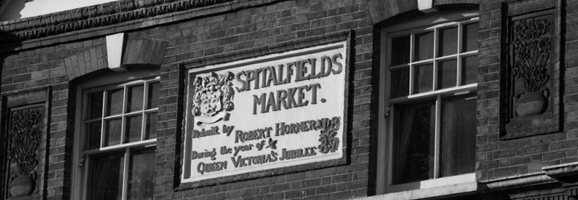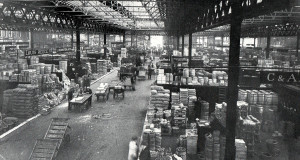
Spitalfields Market in the East End first came into being when Charles the First granted a licence for ‘flesh, fowl and roots’ to be sold on the Spittle Fields – a field adjacent to the hospital and priory of St Mary’s Spittel – which then was an area of London that had remained relatively rural until the Great Fire of London.
Traders had begun operating beyond the city gates – on the site where today’s market stands, following the Great Fire in 1666.
The market was re-founded in 1682 by Charles II as a result of the necessity of providing fresh produce to the ever growing population of the new suburb of London.
Spitalfields Market was a huge success and was open for six days a week throughout most of the eighteen century, but the market began to fall into decline after 1876.
A market porter, Robert Horner, decided to do something about the situation. He bought a short lease on the whole market, and began work on developing new market buildings.
These buildings were sited on the rectangular patch of open ground which retained the name Spittle Fields: Nowadays, the area covered is defined by Crispin Street to the west, Lamb Street to the north, Red Lion Street to the east and Paternoster Row which later became known as Brushfield Street to the south.

However, the market’s popularity was instrumental in its downfall – due to its location, deep in the heart of London; the narrow streets made traffic congestion a real problem. Finally, in 1991, the market was moved to Leyton over in East London, and it seemed that Spitalfields Market was destined to be a name consigned to the history books.
Nevertheless, following almost two decades of careful restoration and regeneration, the market now houses a new collection of artisans. Independent retailers now rub shoulders with restaurants and vintage clothing stalls, bringing this part of the East End back to vibrant life…
